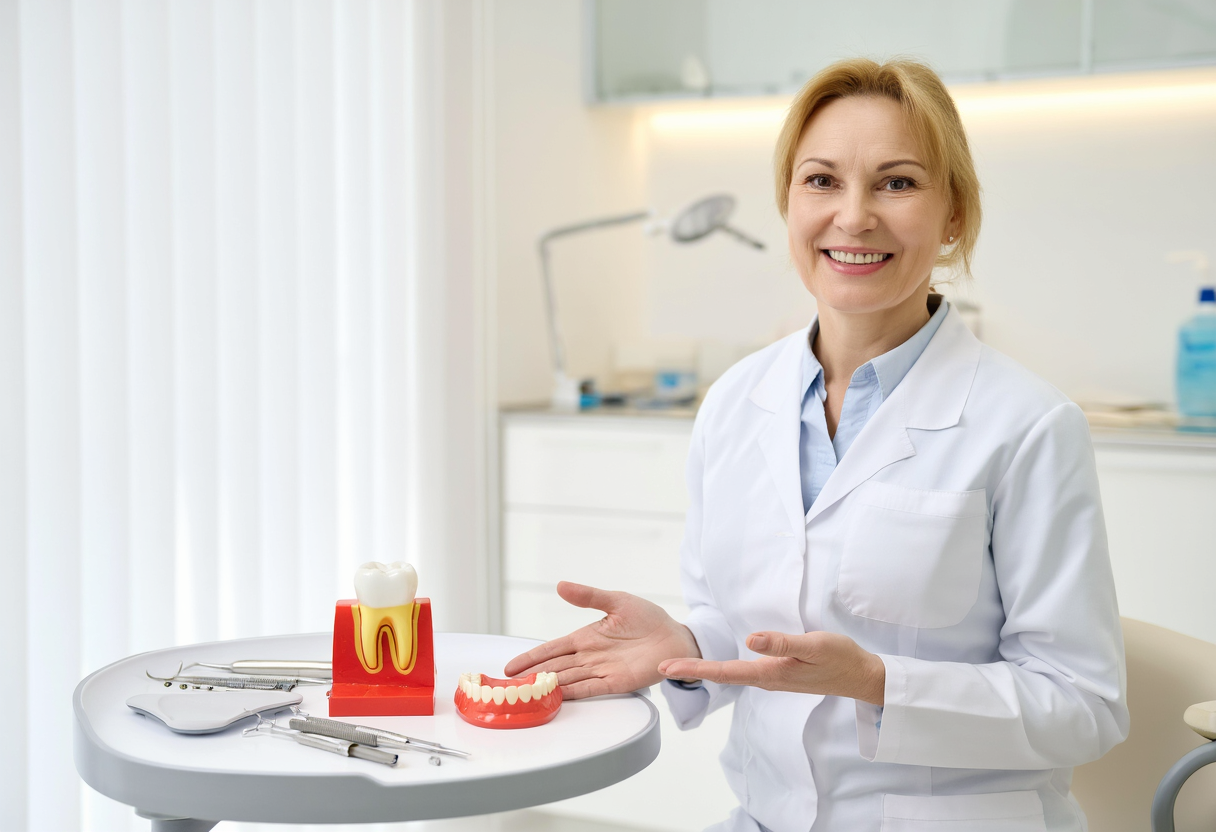Dental Implant vs Denture: Which is Right for You?
Choosing between a dental implant and a denture is more than just a dental decision; it's a lifestyle choice. Understanding the differences can guide you to the right option for your oral health needs. Let's explore the benefits, drawbacks, and personal factors influencing your decision.
Understanding Dental Implants and Dentures
In the realm of oral health, two of the most common solutions for tooth loss are dental implants and dentures. Dental implants vs denture comparisons present vital insights into these options. Implants are surgically attached to the jawbone, while dentures are removable prosthetics. Each approach has distinct methods of application and varying impacts on oral function. With dental implants, individuals often experience improved stability and comfort. In contrast, dentures may offer a non-invasive alternative but require ongoing maintenance and potential adjustments. Evaluating one's dental health and preferences is crucial in this dental implant vs denture dialogue.
Benefits of Dental Implants
Dental implants serve as a long-term solution to tooth loss, offering numerous benefits over dentures. The primary advantage of dental implants is their permanence; they foster a more natural bite and assist in jawbone preservation. Additionally, the reliability of implants reduces the need for frequent replacement procedures. When considering dental implants vs dentures, the durability of implants stands out significantly. Users of implants report higher satisfaction levels, particularly regarding comfort and functionality. Furthermore, unlike dentures that can slip or feel loose, implants provide unwavering support and confidence during speaking and eating.
Life with Dentures
While dental implants have captured significant attention, dentures also hold a place in discussions concerning tooth replacement. Individuals opting for dentures often emphasize their affordability and ease of application. The dental implant vs denture choice offers flexibility, particularly for those who may not qualify for implants due to health considerations. However, dentures require regular maintenance and periods of adjustment, which can be challenging for many. Users may face discomfort and experience dietary limitations. Balancing these pros and cons is essential when making a decision about dental implants vs dentures.
Cost Considerations: Dental Implants vs Denture
Financial implications play a key role in the dental implant vs denture debate. The upfront costs of dental implants are generally higher compared to dentures, but their longevity may justify the investment over time. Dentures, while initially less expensive, often incur additional costs for fittings, replacements, and adjustments. Evaluating the total cost of ownership is crucial in determining the most suitable option. Insurance coverage can also significantly affect this decision, as some plans may cover dentures while providing limited assistance for dental implants.
Personal Lifestyle Preferences
Every individual's lifestyle can sway their choice between dental implants and dentures. Active individuals or those in demanding professions may prefer the stability and resilience of dental implants. Conversely, those valuing versatility and lower initial costs might lean towards dentures. The dental implant vs denture discussion should accommodate personal habits and comfort levels in daily activities. Additionally, social interactions can be affected; the confidence gained from having stable dental structures often reinforces one's self-image. Hence, understanding how each option resonates with personal routines can guide decisions effectively.
Conclusion: Making the Right Choice
Ultimately, the choice between dental implants and dentures encompasses various factors such as health, comfort, cost, and lifestyle. As you engage in the dental implant vs denture consideration, leverage professional advice and personal reflection. Consulting with a dental professional provides insight into personal needs and suitability for either option. While both solutions offer significant benefits, identifying the right fit for your unique circumstances can lead to lasting satisfaction and improved oral health.
